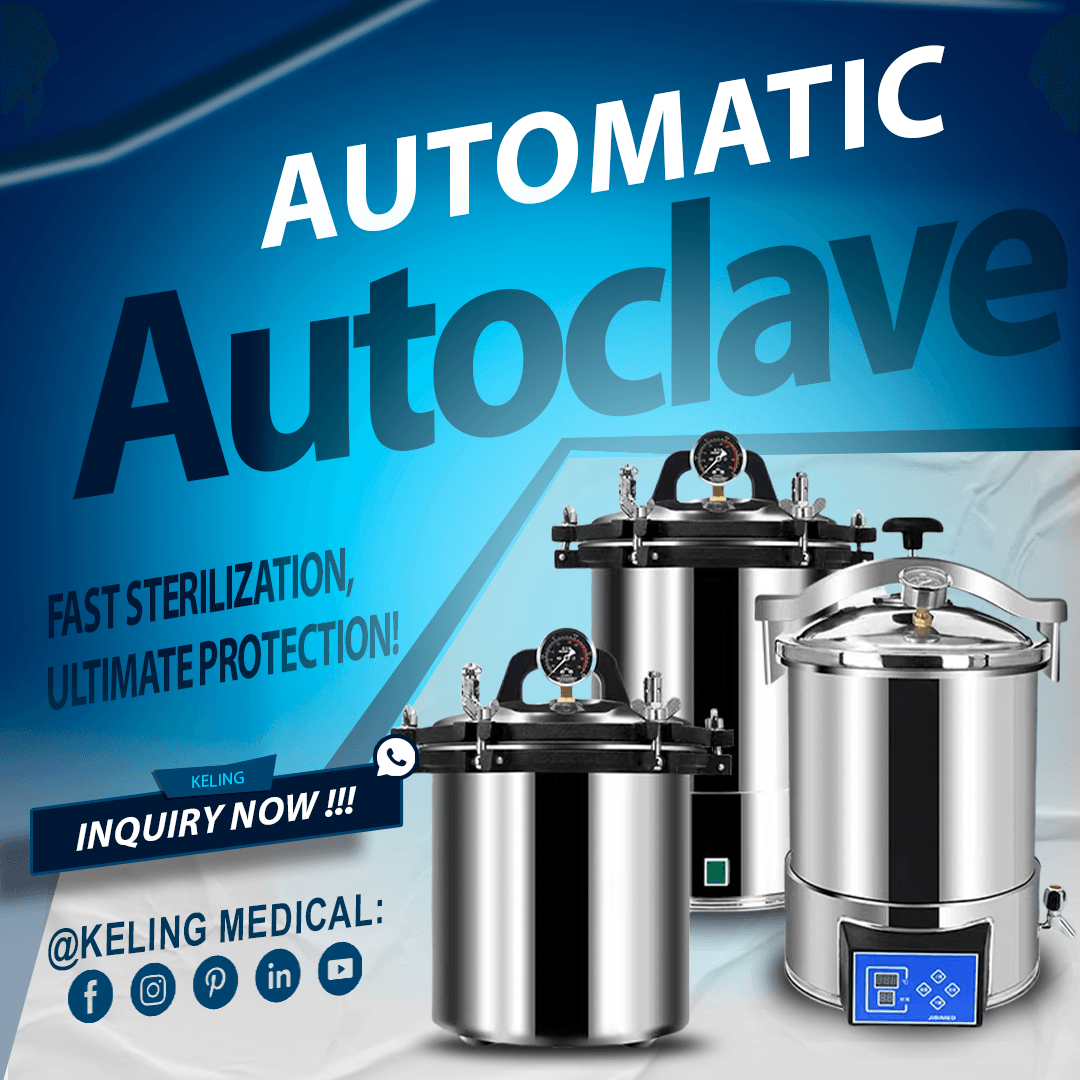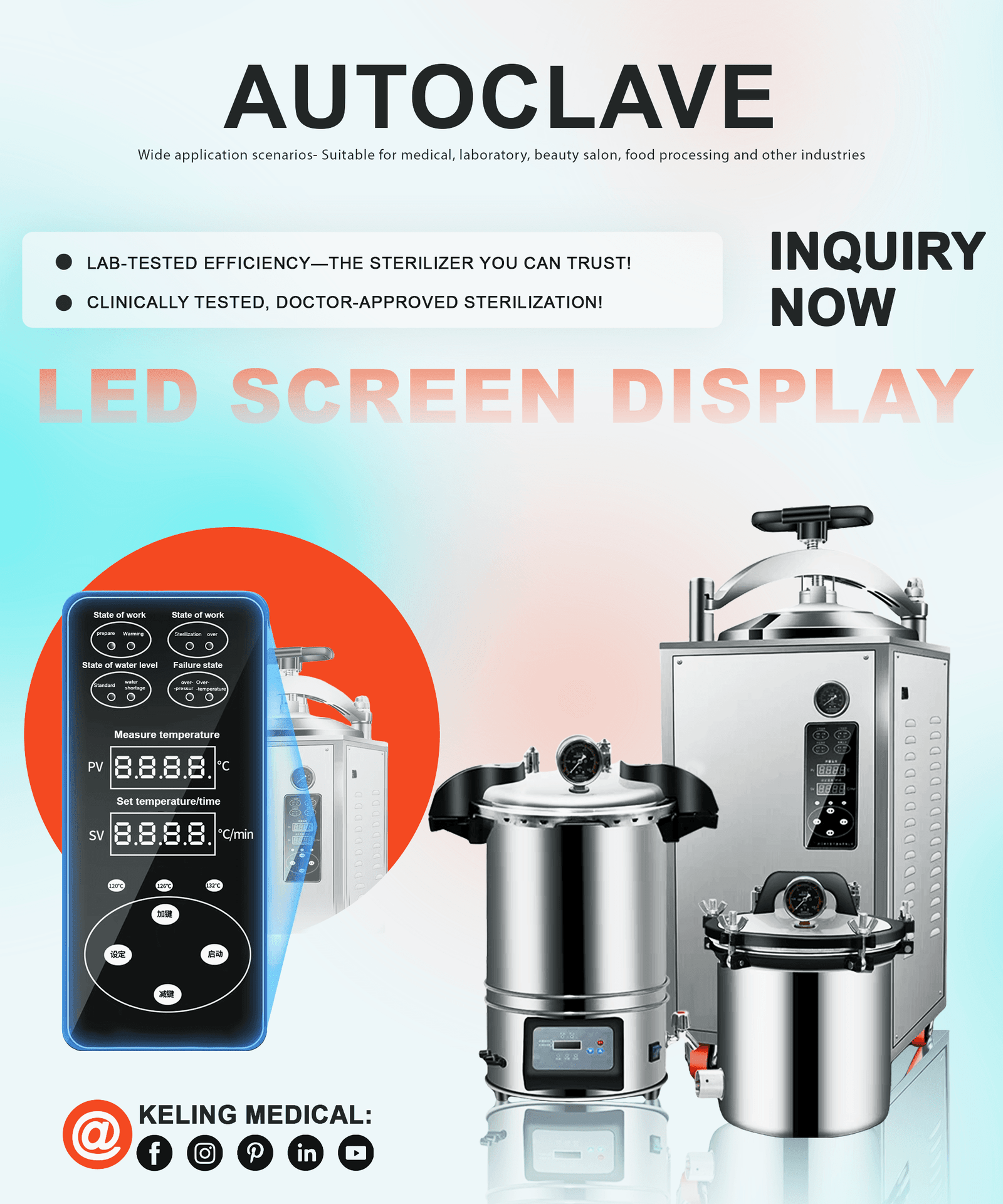
Medical equipment distributors, dealers, and procurement professionals can make better purchasing decisions by understanding the price-determining elements of sterilization machines. Financial concerns remain crucial but quality and reliability must not suffer as a result.
This guide examines the main factors that influence dental sterilization machine pricing while offering tips to balance cost with quality and strategies for finding economical options.
Several factors determine the price range of dental sterilization machines.
Several factors create significant fluctuations in the pricing of dental sterilization machines. Let’s examine the top considerations in this breakdown.
The cost of various sterilizers changes according to their technological features and specific uses.
Price Range: Moderate to high.
Autoclaves are favored as the primary sterilization tools in dental practices due to their widespread adoption. Autoclaves incorporate advanced technology along with high efficiency and superior versatility which increases their price.
Price Range: Moderate.
Chemical sterilizers tend to be more affordable than autoclaves although additional expenses for chemicals required for sterilization may apply.
Price Range: Low to moderate.
UV sterilizers cost less than other systems but can only sterilize surfaces which reduces their versatility.
Sterilization machine prices are greatly influenced by their technical specifications and available features.
Sterilization machines that have greater instrument capacities tend to have higher prices.
Sterilization machines that complete cycles more quickly tend to carry higher prices.
Fully automated sterilization machines with digital controls and monitoring systems cost more but provide enhanced convenience and precision.
While energy-efficient models require a greater initial investment they prove cost-effective over time.
The inclusion of advanced safety features like automatic shut-off and pressure monitoring results in increased pricing.
The construction materials of a sterilization machine determine both its price and durability. Sterilization machines constructed from high-grade stainless steel or corrosion-resistant materials cost more but provide extended operational life.
This guide refrains from mentioning particular brands however it should be noted that sterilization machines from reputable manufacturers that provide quality and reliable equipment usually cost more.
A number of sterilization machines operate with necessary supplementary accessories or consumables.
Sterilization pouches or wraps.
Chemicals for chemical sterilizers.
Replacement parts like gaskets and filters.
The total price calculation must include these recurring expenses.
The main factor to consider when buying a dental sterilization machine is achieving harmony between expense and quality. These guidelines will assist you in reaching a financially sound decision.
Establish the number of instruments your clinic requires sterilization for each day.
You should identify which instruments must undergo sterilization including examples like heat-sensitive tools and hollow instruments.
You need to evaluate how much space your clinic has before choosing a sterilization machine.
Choose equipment that includes your required features but avoids unnecessary functions that drive up the price.
Give top importance to fundamental features including capacity, cycle speed, and safety mechanisms.
Distributors and dealers may provide bulk purchase discounts to their customers.
Certain suppliers offer installment payment plans to help you finance your equipment purchase.
Evaluate whether suppliers will accept trade-ins of your current machines as they can help lower the expense of upgrading.
Assess the machine’s energy performance to predict future utility expenses.
Include both consumables and maintenance expenses when determining the machine’s total cost of ownership.
Choose reliable suppliers who offer warranties and support your team with after-sales service and training.
The supplier should provide clear installation and maintenance documentation.
Investing in a dental sterilization machine is a crucial step in ensuring the safety and efficiency of your dental practice. While price is an important factor, it’s essential to prioritize quality, reliability, and long-term value.
By understanding the factors that influence the price of sterilization machines and following the tips outlined in this guide, you can make an informed decision that meets your clinic’s needs and budget.
For more insights into sterilization equipment, check out these related articles:
If you’re looking for high-quality sterilization machines, Keling Medical offers a wide range of solutions tailored to dental practices.
The price varies depending on the type and features of the machine. Autoclaves typically range from moderate to high in cost, while UV sterilizers are more affordable.
Not necessarily. The best machine for your practice depends on your specific needs, such as instrument volume, type, and desired features.
Look for discounts, financing options, or trade-in programs offered by suppliers. Consider long-term costs, such as maintenance and consumables, when evaluating affordability.
Essential features include capacity, cycle speed, safety mechanisms, and energy efficiency. Avoid paying extra for unnecessary features that don’t add value to your practice.
You can explore a variety of sterilization machines on Keling Medical’s website.
For more information or to inquire about our products, contact us:
Email: inquiry@shkeling.com
WhatsApp: Click to Chat
Website: https://autoclaveequipment.com/

Introduction Autoclave machines used in hospitals are one of the most important investments in healthcare infrastructure, serving as the first line of defense against healthcare-associated infections. Sophisticated sterilization equipment is

The autoclaving process serves as an essential sterilization practice utilized across medical, laboratory, and research facilities to protect glassware and instruments through effective sterilization. High-pressure steam eliminates pathogens during this

The autoclaving process serves as an essential sterilization practice utilized across medical, laboratory, and research facilities to protect glassware and instruments through effective sterilization. High-pressure steam eliminates pathogens during this

The autoclaving process serves as an essential sterilization practice utilized across medical, laboratory, and research facilities to protect glassware and instruments through effective sterilization. High-pressure steam eliminates pathogens during this

The autoclaving process serves as an essential sterilization practice utilized across medical, laboratory, and research facilities to protect glassware and instruments through effective sterilization. High-pressure steam eliminates pathogens during this
The autoclaving process serves as an essential sterilization practice utilized across medical, laboratory, and research facilities to protect glassware and instruments through effective sterilization. High-pressure steam eliminates pathogens during this